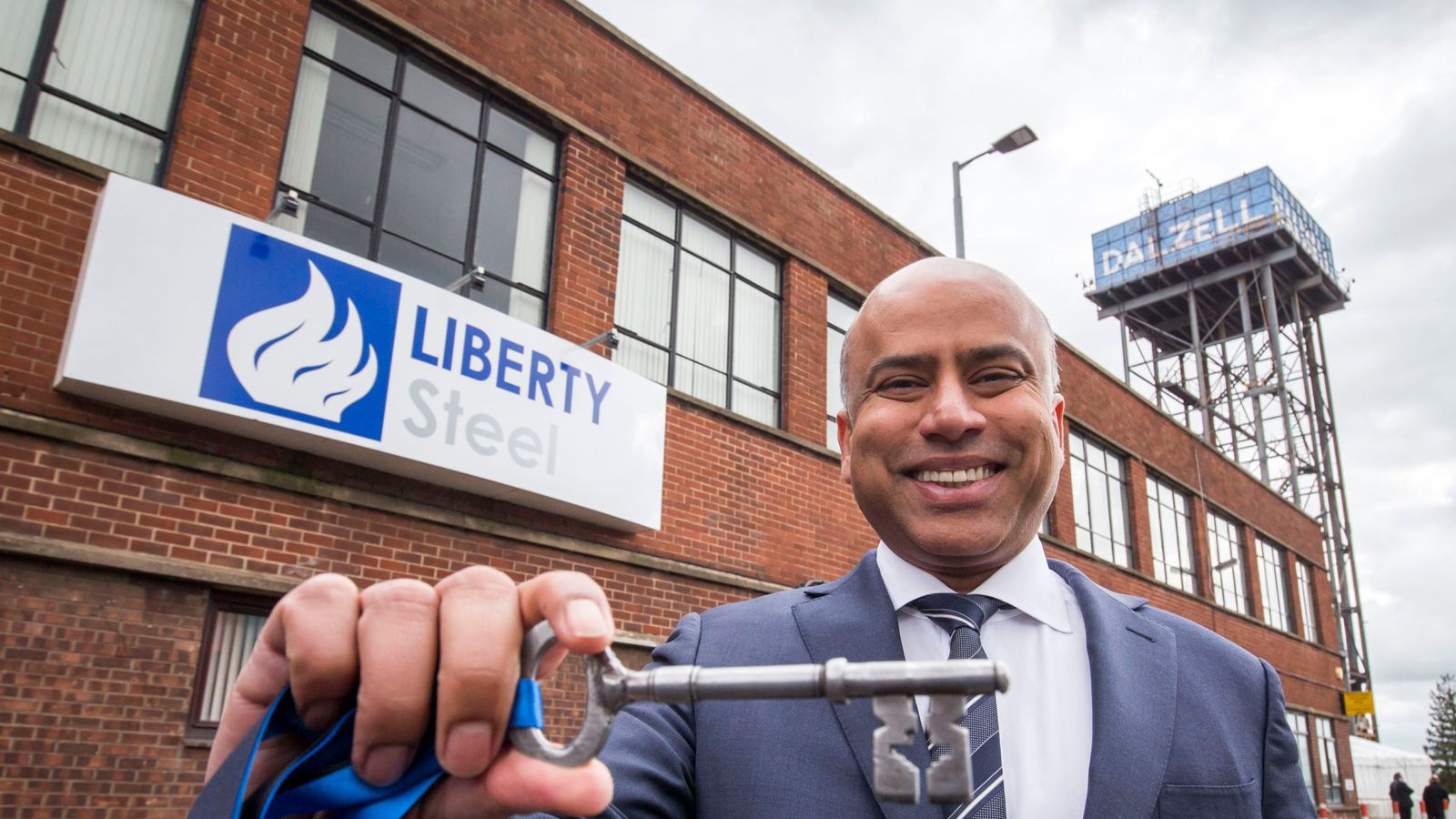Britain’s state-owned business bank has stripped Greensill Capital of a government guarantee on loans to the metals tycoon Sanjeev Gupta’s empire, after deciding it had breached the terms of pandemic lending programmes.
Sky News has learnt that the British Business Bank (BBB) has informed Greensill that it is removing a taxpayer guarantee following an investigation into the UK-based fintech company’s compliance with the rules of the Coronavirus Large Business Interruption Loan Scheme (CLBILS).
City sources said that EY, the accountancy firm, and Hogan Lovells, the law firm, had been drafted in by the government to assess whether Greensill was in breach of the CLBILS rules.
One banking insider said the advisers had concluded in recent days that the terms had been breached in relation to areas such as the adequacy of the security taken by Greensill over assets owned by GFG Alliance, the network of companies headed by Mr Gupta.
If enforced, the removal of the government guarantee could leave Greensill on the hook for substantial sums if GFG ultimately defaults on the loan repayments.
The move will deepen the sense of crisis engulfing Greensill, which counts the former prime minister David Cameron as a senior adviser.
The BBB, GFG and Greensill all declined to comment on Monday evening, but none disputed the suggestion that the group behind Britain’s third-biggest steel producer had borrowed several hundred million pounds from Greensill under the CLBILS programme.
It was unclear whether the BBB had taken action to strip any other lender of its government guarantee on loans made under CLBILS or its smaller counterpart, CBILS.
Under the schemes introduced early in the COVID-19 crisis by Rishi Sunak, the chancellor, taxpayers guarantee 80% of the value of the loan, although borrowers remain fully liable for the debt.
The CLBILS programme has been extended until the end of the month, and Mr Sunak plans to set out further details of a successor scheme in his Budget on Wednesday.
The news that the BBB has moved to strip Greensill on the government guarantee relating to Mr Gupta’s companies will further reinforce the unease which has grown over the links between them.
On Monday, it emerged that Greensill was in talks about a $100m sale of its operating business to Apollo Global Management, with the alternative outcome a possible administration handled by Grant Thornton.
Talks between Greensill and Apollo were revealed by Sky News last month, although the Wall Street Journal was first to report details of the deal’s potential structure, including the prospective insolvency process.
A decision by Credit Suisse to freeze $10bn of funds linked to Greensill appeared to have left the fintech with few alternatives just weeks after pursuing talks with other investors about a fundraising that it planned to value it at $7bn.
“We remain in advanced talks with potential outside investors in our company and hope to be able to update further on that process imminently,” Greensill said on Monday.
Mr Cameron has been an adviser to the company since 2018 after forging a close relationship with Lex Greensill, its founder.
The company has raised billions of dollars in equity from shareholders including SoftBank’s Vision Fund, which has backed prominent tech companies including Uber Technologies, WeWork and the British augmented reality start-up Improbable.
General Atlantic, the private equity firm, is also an investor.
Greensill helps clients manage cash by paying their suppliers early in return for a discount.
According to company data, it provided more than $143bn to more than 10 million customers and suppliers in 2020.
It describes itself as the world’s leading non-bank provider of supply chain finance.
Greensill also offers a string of other products, including Earnd, an early-payment service which counts the NHS among its clients.
It is not clear what impact an insolvency could have on the provision of such services.
The flow of working capital finance has become increasingly important during the pandemic, particularly for small businesses which have been hurt by an acute cashflow squeeze.
Last year, providers of such funding including Greensill held talks with the Treasury and Bank of England about the creation of a programme to aid UK SMEs during the coronavirus crisis.
The government eventually decided against launching the scheme.
The company has become one of the largest fintech businesses in Britain, reaching a $4bn valuation in 2019 when it raised funding from investors led by SoftBank’s giant Vision Fund.
Nevertheless, it has faced growing scrutiny over the last year of its close links to Mr Gupta, who controls Liberty Steel.
Greensill was also said to have been rebuffed by a number of big accountancy firms in its search for a new auditor.






















